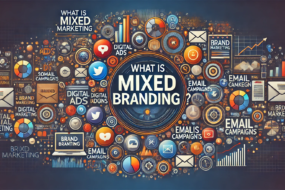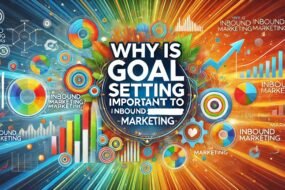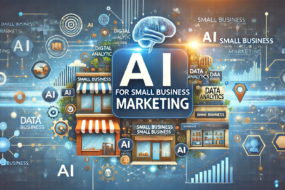
Marketing is pivotal in our modern society, driving economic growth, fostering innovation, and connecting businesses with consumers.
How Does Marketing Benefit Society? In the B2B (Business-to-Business) sector, the impact of marketing is equally significant, if not more so.
In this article, we will explore the positive impact of marketing in the B2B sector, backed by statistics and insights.
The Essence Of Marketing
Marketing extends beyond the mere act of selling products or services; it is a multifaceted discipline encompassing many activities. At its core, marketing involves understanding customers’ needs, creating value, and building solid relationships.
These principles hold when discussing marketing in the B2C (Business-to-Consumer) or B2B context. Marketing in the B2B sector is often characterized by businesses catering to other companies.
While the end consumers may not be directly involved, the impact ripples through the supply chain and has far-reaching consequences.
The B2B Sector: A Pillar Of Modern Economies
The B2B sector, a fundamental pillar of modern economies, serves as the conduit for The global-scale interchange of goods and services. In this realm, businesses emphasize the formulation and execution of robust marketing strategies and plans.
These strategies are indispensable for securing partnerships, fostering collaborations, and retaining a competitive edge in an increasingly dynamic marketplace. B2B marketing can yield many advantages beyond individual businesses when conducted precisely and effectively.
The interconnected nature of the B2B sector not only drives economic growth but also fosters innovation, job creation, and increased productivity.
It promotes the development of specialized industries and enables the efficient utilization of resources, leading to enhanced cost-effectiveness and sustainability. B2B marketing can fuel advancements in technology and infrastructure, further bolstering economic prosperity.
It is crucial in global trade, breaking geographical barriers, and fostering international relations. The B2B sector’s reliance on digital platforms and technology integration has accelerated its global reach and enhanced its ability to adapt to changing market conditions, making it a critical player in shaping modern economies.
The B2B sector’s significance transcends mere commerce; it underpins the foundations of our contemporary economic systems and holds the potential to drive progress, innovation, and prosperity for society.
How Does Marketing Benefit Society: Unveiling The Positive Impact

Marketing plays a crucial role in society by providing several positive impacts that benefit individuals, businesses, and the community. Here are some of how marketing benefits society:
1. Economic Growth
Marketing in the B2B sector stimulates economic growth by fostering competition and innovation. Companies compete not only by offering better products or services but also by improving the way they reach and engage potential clients. As a result, businesses are constantly driven to innovate and find new, more efficient ways to meet the demands of their B2B clients.
According to marketing in B2B sector statistics, in the United States alone, the B2B e-commerce market is Anticipated to achieve an impressive $1.2 trillion by 2023, with an annual growth rate of over 9%. This growth is a testament to the pivotal role played by marketing strategies and plans in driving economic expansion.
2. Job Creation
The positive impact of marketing in the B2B sector extends to job creation. As businesses experience growth and extend their operations, they require skilled professionals to manage their marketing efforts. This leads to increased job opportunities in marketing management, content creation, data analysis, and market research.
According to B2B marketing statistics, the job market for marketing professionals has been consistently strong, which is expected to continue. By 2025, the employment of marketing managers is projected to grow by 7%, a rate faster than the average for all occupations.
3. Innovation
In the B2B sector, marketing acts as a catalyst for innovation. When businesses understand the needs of other companies, They possess the chance to develop inventive solutions to address those needs. This innovation is not limited to products but also extends to processes and business models.
For example, cloud computing and Software as a Service (SaaS) solutions emerged as innovative responses to the demands of B2B clients for scalable, cost-effective technology solutions. These innovations have had a profound impact on various industries and have become essential tools for businesses around the world.
4. Access To Information
Marketing also benefits society by providing businesses with access to valuable information. In the B2B context, marketing research and analytics are critical in understanding market trends, customer preferences, and competitive landscapes. This data aids businesses in making well-informed decisions and adapting to changing market conditions.
5. Efficiency And Cost Reduction
Efficient marketing strategies and plans help businesses reduce costs and increase their competitiveness. Companies can allocate resources more effectively by targeting the right audience, optimizing their marketing efforts, reducing waste, and improving their bottom line. Consequently, this results in reduced consumer prices and a more effective distribution of resources within the economy.
6. Environmental Sustainability
The impact of marketing in the B2B sector also extends to environmental sustainability. As businesses endeavor to fulfill the increasing demand for environmentally friendly products and services, marketing plays a crucial role in communicating these offerings to potential clients. Sustainable practices and green marketing have become integral to B2B strategies, leading to a more sustainable and environmentally conscious society.
7. Connectivity And Collaboration
Marketing in the B2B sector fosters connectivity and collaboration among businesses. In a globalized world, companies rely on marketing to find partners, suppliers, and clients across borders. This interconnectedness strengthens international trade, promotes cultural exchange, and creates opportunities for mutual growth.
Writing A Marketing Strategy

The positive impact of marketing in the B2B sector is undeniable, but it only happens by chance. It requires a well-crafted marketing strategy and plans to guide businesses in achieving their goals.
Here are the critical steps involved in writing an effective marketing strategy:
1. Understand Your Audience
A profound comprehension of your target audience is Crucial to the bedrock of any prosperous marketing strategy. In the B2B sector, this means identifying the businesses and decision-makers you want to reach.
What are their needs, pain points, and goals? The better you understand your audience, The better you can customize your marketing endeavors to suit their preferences.
2. Set Clear Objectives
What do you want to achieve with your B2B marketing strategy? Whether it’s increasing sales, expanding your client base, or launching a new product, your objectives should be specific, measurable, achievable, relevant, and time-bound (SMART). Setting clear goals will help you stay focused and measure your progress.
3. Research Your Market
In-depth market research is crucial for identifying opportunities and threats in your industry. Study your competition, industry trends, and market dynamics. This information will guide your decision-making and help you position your business effectively.
4. Develop Your Value Proposition
What distinguishes your business from competitors is encapsulated in your value proposition. This critical element must effectively convey the unique advantages offered by your products or services.
In the B2B realm, reliability, cost-efficiency, and added value hold significant sway. Crafting a compelling value proposition entails addressing these factors to resonate with businesses seeking distinctive value propositions.
5. Choose the Right Marketing Channels
Navigating the diverse landscape of B2B marketing involves a strategic selection of channels. These may encompass trade shows, industry publications, social media, and email marketing. The key lies in identifying the most effective channels that align with the preferences of your target audience and allocating resources judiciously to maximize impact.
6. Create High-Quality Content
In the B2B sector, the adage “Content is king” holds. Developing content that is not only informative but also valuable and engaging is paramount. This spans various formats, including blog posts, whitepapers, case studies, and video content. Such high-quality content establishes your business as an authority, fostering trust and credibility among potential clients.
7. Implement And Monitor
Upon finalizing your marketing strategy, the subsequent step involves its execution. This phase necessitates a vigilant approach, wherein regular progress monitoring becomes paramount. Through systematic analysis of data and insights, adaptability to changing circumstances is essential.
Given the dynamic nature of the marketing landscape, continuous adjustments to the strategy ensure its relevance and efficacy.
8. Measure ROI
An indispensable aspect of assessing the impact of your marketing endeavors lies in diligently measuring your Return on Investment (ROI). This involves scrutinizing whether your implemented strategies and plans yield the intended results.
When the desired outcomes are unmet, a strategic review becomes imperative. Recognizing opportunities for enhancement and fine-tuning your approach based on ROI metrics significantly optimize your marketing initiatives’ overall effectiveness.
Key B2B Marketing Statistics
B2B marketing statistics provide valuable insights into the impact of marketing in
the B2B sector. Here are several crucial statistics underscoring the importance of marketing in this context:
1. Content Marketing Dominates
Content marketing is a powerful instrument in the B2B sector, with 89% of B2B marketers incorporating it, as the Content Marketing Institute reported, to achieve their goals. High-quality content establishes authority, educates potential clients, and drives lead generation.
2. LinkedIn Reigns Supreme
LinkedIn is the preferred social media platform for B2B marketers. Over 97% of B2B marketers use LinkedIn for content distribution, making it the most effective platform for reaching a professional audience.
3. Email Marketing Remains Effective
Email marketing remains a highly effective B2B marketing channel. Approximately 78% of B2B marketers credit email as the most effective channel for lead generation.
4. Video Marketing On The Rise
The adoption of video in B2B marketing is on the rise. Over 70% of B2B marketers report that video positively impacts their marketing efforts. Video content is engaging, shareable, and helps convey complex information effectively.
5. Account-Based Marketing (ABM) Gains Traction
Account-based marketing is a precision strategy concentrated on high-value clients. In B2B, 60% of companies plan to invest more in ABM in the coming year. This individualized approach enables businesses to customize their marketing efforts to individual clients, increasing conversion rates.
6. Mobile Optimization Is Essential
Mobile optimization has become an essential requirement rather than an optional decision. Over 67% of B2B buyers prefer researching and purchasing from mobile-friendly websites. Ensuring that your online presence is mobile-responsive is critical for reaching potential clients.
7. Social Selling Drives Results
Social selling involves using social media to identify and engage potential clients. 79% of B2B marketers using social selling reported generating more leads.
Platforms such as LinkedIn, Twitter, and Instagram are prominent in social media and have evolved into instrumental in building relationships with B2B clients.
Future Research Directions
As the world of marketing in the B2B sector continues to evolve, several promising research directions can enhance our understanding of its positive impact on society:
1. Artificial Intelligence And Automation
Integrating artificial intelligence (AI) and automation in B2B marketing represents a rapidly evolving and promising field. Ongoing and future research endeavors can delve into how AI technologies enhance personalized marketing strategies, optimize content distribution, and streamline the efficiency of lead-generation processes within the B2B domain.
Exploring these facets is pivotal for understanding the full spectrum of possibilities that AI and automation bring to the forefront of B2B marketing, shaping the future landscape of how businesses connect, engage, and foster relationships with their clients.
2. Sustainability And Ethical Marketing
In light of escalating environmental and ethical concerns, it becomes imperative to undertake in-depth research into sustainable and ethical marketing practices within the B2B sector. This line of inquiry seeks to understand how businesses can adeptly communicate their dedication to sustainability and ethical standards to B2B clients.
Moreover, the research endeavors to unravel the consequential impact of such communication on decision-making processes, shedding light on the intricate dynamics between corporate responsibility and B2B relationships.
3. Data Privacy And Security
The B2B sector places the utmost priority on data privacy and security. Future research initiatives are poised to explore and elucidate the best practices for managing and safeguarding sensitive client data.
This involves an examination of the technological and procedural frameworks for data protection, as well as an exploration of the far-reaching implications of data breaches on B2B relationships. Understanding these nuances is pivotal for fostering trust and resilience in the digital age.
4. International B2B Marketing
As globalization continues to shape business landscapes, research into international B2B marketing strategies emerges as a critical domain. This study area delves into the multifaceted challenges businesses encounter when navigating cultural disparities, legal intricacies, and diverse market conditions during cross-border B2B transactions.
The research aims to provide insights that guide companies in formulating effective and culturally sensitive international marketing strategies, ensuring success on the global stage.
5. Customer Relationship Management
Within B2B marketing, customer relationship management (CRM) is pivotal. Research in this area can delve into the latest CRM technologies, exploring their impact on enhancing client relationships. Additionally, the focus extends to strategies to bolster client retention within the B2B sector.
Understanding the holistic influence of CRM on long-term business sustainability is crucial, shedding light on its multifaceted role in shaping the trajectory of B2B enterprises.
In Conclusion
Marketing in the B2B sector is a dynamic and influential force that benefits society in numerous ways. It drives economic growth, fosters innovation, and enhances connectivity among businesses.
Through well-crafted marketing strategies and plans, businesses can positively impact society, creating jobs, driving efficiency, and contributing to environmental sustainability.
Key B2B marketing statistics underline the importance of content marketing, social media platforms like LinkedIn, and email marketing in reaching B2B clients effectively. These insights inform marketers on the most effective channels and strategies to pursue.
As the marketing field in the B2B sector continues to evolve, upcoming research directions promise to shed light on the role of AI, sustainability, data privacy, international marketing, and customer relationship management.
These research areas will shape the future of B2B marketing, ensuring its positive impact on society remains steadfast and continues to grow. In the ever-changing business landscape, marketing in the B2B sector remains a vital force for progress, innovation, and connectivity.








No Comments